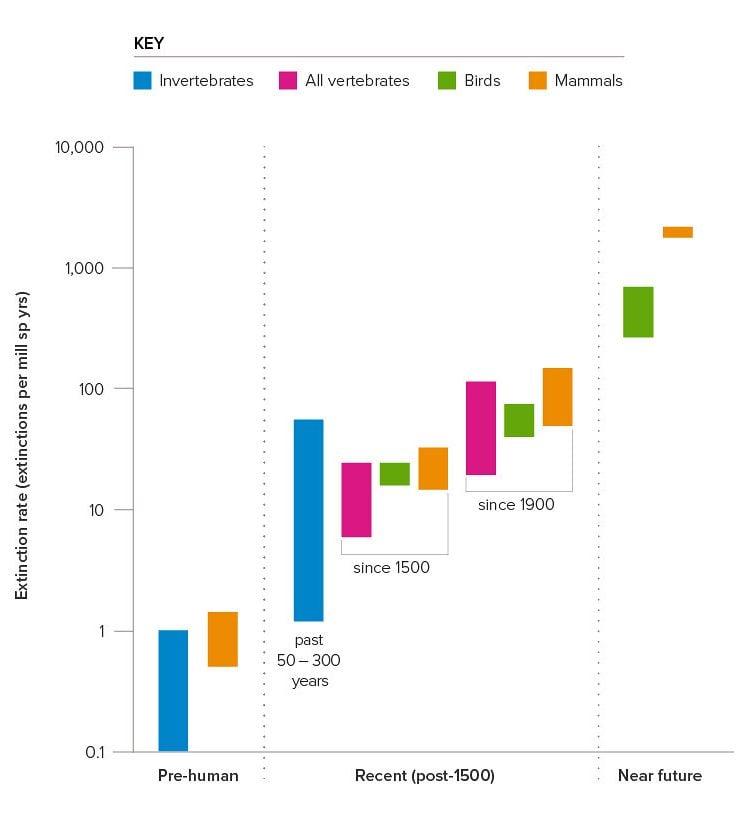In an extractive economic world driven by the growth imperative, you cannot afford to slow down. It is a balance in imbalance: Go too fast and toxic outputs will overwhelm you; too slow and others will crush you.
| This post is part of a reading series on Stellar, by James Arbib and Tony Seba. To quickly access all chapters, please click here. Disclaimer: This chapter summary is personal work and an invitation to read the book itself for a detailed view of all the authors’ ideas. |
Toxic Outputs
Man-made ecological disasters have contributed, in whole or in part, to the collapse of many societies throughout history, such as the Maya, the Khmer, and the Akkadian Empires. Today’s environmental challenges have the same root cause: harnessing the X-flow.1
However, “As the global population has exploded over the last 200 years, turbocharged by fossil-fueled industrialization, environmental destruction has increased massively. . . . Meanwhile our destruction of the natural world has led to species loss at a rate many hundred times higher than the historical average, with scientists estimating that around one million species are currently threatened with extinction.”2 If anything, climate change is accelerating this process, while threatening to make many places on Earth uninhabitable, as well as increasing food shortages, health risks, and infrastructure damage.


